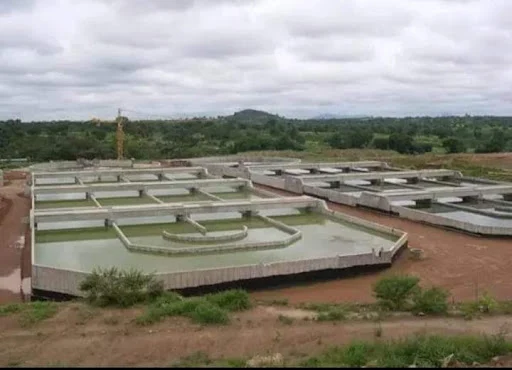Urgent-Concerns-Raised-Over-Collapse-of-Abuja-Main-Sewage-Line
Urgent Concerns Raised Over Collapse of Abuja Main Sewage Line
The Environmental Health Officers Association of Nigeria (EHOAN), FCT Chapter, has sounded a pressing alarm following the collapse of a critical sewage line in Abuja, the nation's capital. The association has urgently called on the Federal Capital Territory (FCT) Minister, Nyesom Wike, to prioritize immediate remedial action to avert a looming public health crisis.
Ismaila Dankogi, President of EHOAN, highlighted the severe health risks posed by this incident, especially in light of the ongoing cholera outbreak across Nigeria. He warned that the collapse of the sewage infrastructure could exacerbate the transmission of cholera, potentially leading to devastating consequences if not swiftly addressed.
Dankogi emphasized the need for a thorough investigation into the underlying causes of the sewage line collapse, advocating for the collection of relevant data from the Abuja Environmental Protection Board (AEPB). He also recommended engaging experienced contractors to repair the damaged sewage network and prevent further environmental contamination.
In addition to these measures, Dankogi stressed the necessity of implementing immediate actions to contain the spread of cholera. This includes ensuring the provision of safe water by the water board and enhancing sanitation and hygiene facilities. He affirmed EHOAN's readiness to collaborate closely with the minister and relevant agencies to ensure a rapid and effective response. The urgency of these actions, he noted, is critical to safeguarding the health and well-being of residents in the Federal Capital Territory.
The collapse of the main sewage line in Abuja has raised significant concerns among public health officials and residents alike. The incident underscores the fragility of the city's infrastructure and the potential for severe public health repercussions if critical systems are not adequately maintained and promptly repaired.
Dankogi's call for a comprehensive investigation into the cause of the collapse is particularly pertinent. Identifying the root causes will be essential to preventing similar incidents in the future. This process will likely involve assessing the integrity of the existing sewage network, examining maintenance records, and evaluating the impact of external factors such as heavy rainfall or construction activities.
The role of the Abuja Environmental Protection Board (AEPB) will be crucial in this investigation. As the agency responsible for managing the city's waste and environmental health, the AEPB will need to provide detailed data and cooperate fully with other stakeholders to facilitate a thorough examination of the incident.
Repairing the damaged sewage infrastructure will require the expertise of seasoned contractors. These professionals will need to employ advanced techniques and materials to ensure the durability and reliability of the repaired system. The selection of contractors should be based on their proven track record in handling similar projects, as well as their ability to complete the repairs within a tight timeframe.
Beyond the immediate repair work, Dankogi's emphasis on preventive measures is equally important. Ensuring the provision of safe water and enhancing sanitation facilities are fundamental steps in mitigating the spread of cholera. The water board will need to prioritize the distribution of clean water to affected areas, while efforts to improve hygiene and sanitation must be intensified across the FCT.
EHOAN's readiness to collaborate with the FCT minister and other relevant agencies is a positive sign. Effective coordination and communication among all stakeholders will be essential to mounting a swift and effective response to this crisis. This collaborative approach should extend to public awareness campaigns, aimed at educating residents about the importance of hygiene and preventive measures to reduce the risk of cholera transmission.
The urgency of these actions cannot be overstated. The health and well-being of residents in the Federal Capital Territory are at stake, and swift, decisive action is required to prevent a full-scale public health crisis. The collapse of the main sewage line in Abuja serves as a stark reminder of the critical importance of maintaining robust and reliable infrastructure, particularly in a rapidly growing city.
In conclusion, the collapse of Abuja's main sewage line has highlighted the urgent need for immediate and coordinated action to address the potential public health risks. The Environmental Health Officers Association of Nigeria (EHOAN), FCT Chapter, has played a pivotal role in bringing this issue to the forefront, and their recommendations provide a clear roadmap for mitigating the impact of this incident. By prioritizing the repair of the damaged sewage network, implementing preventive measures, and fostering collaboration among stakeholders, the FCT can effectively safeguard the health and well-being of its residents and prevent future crises.
Source: Politics Nigeria




Comments